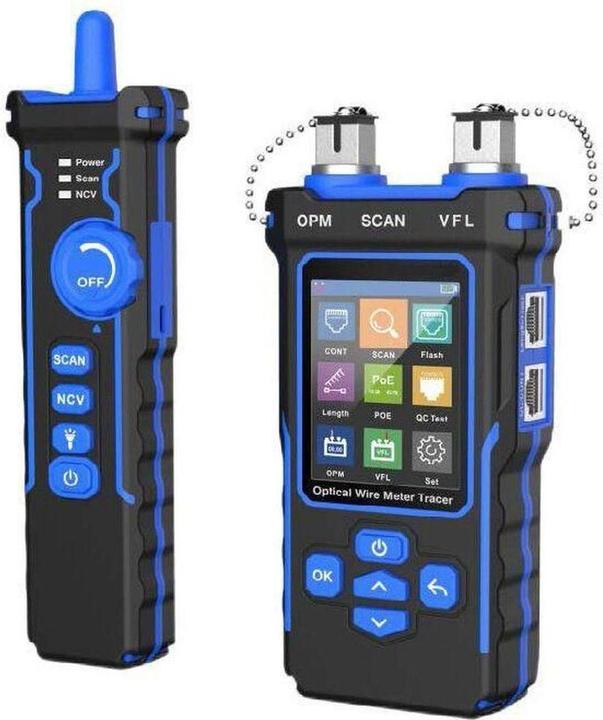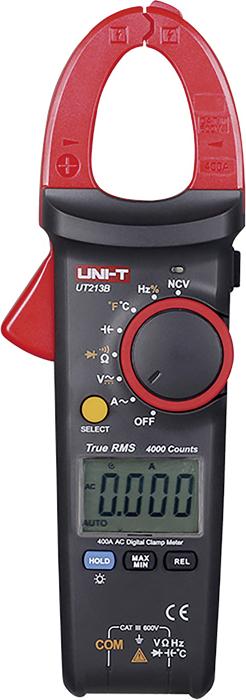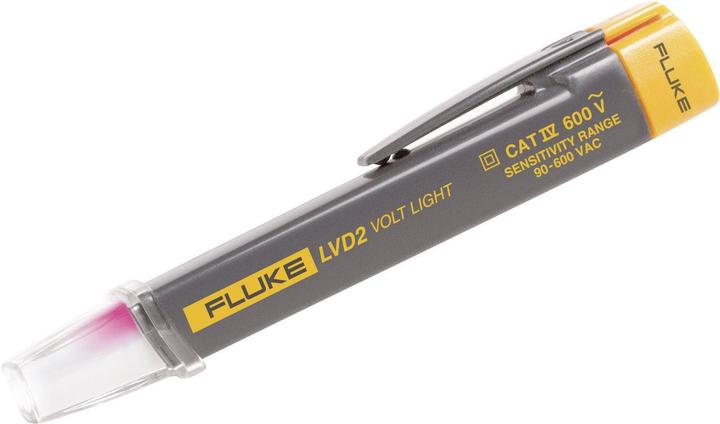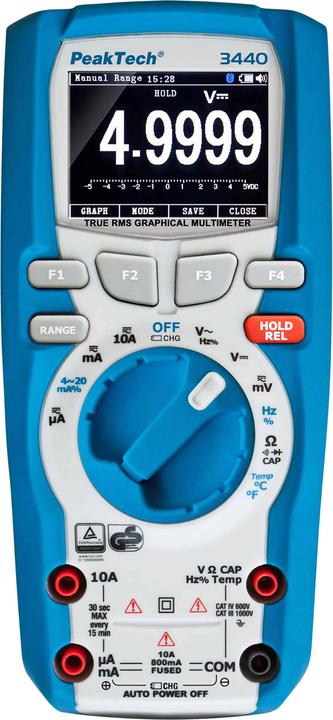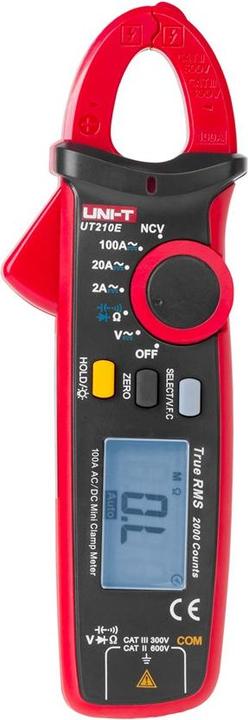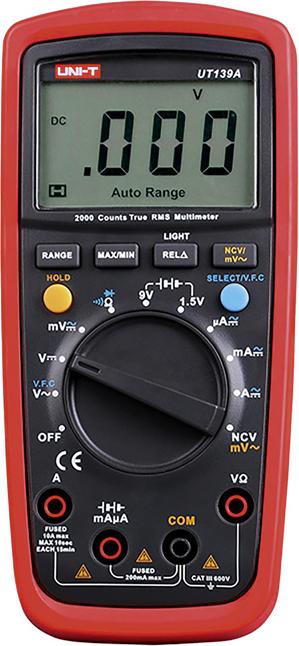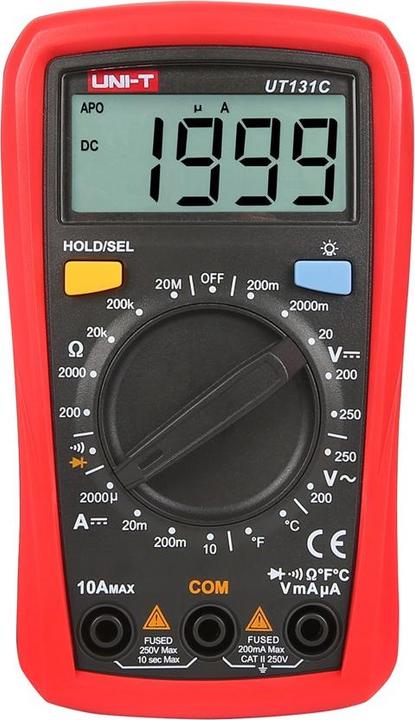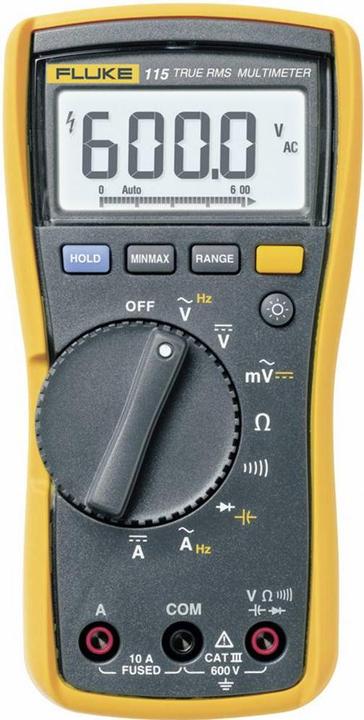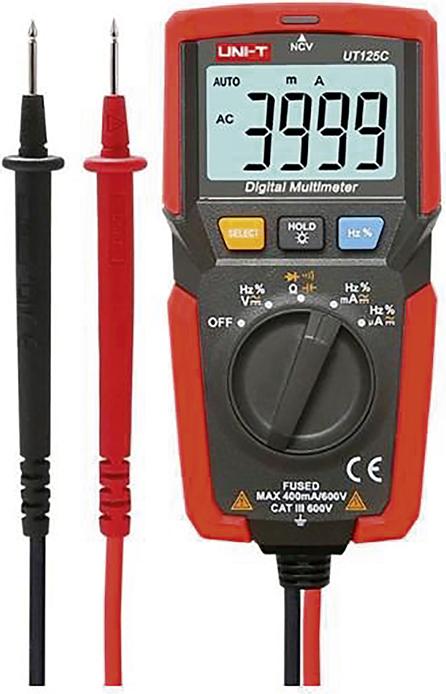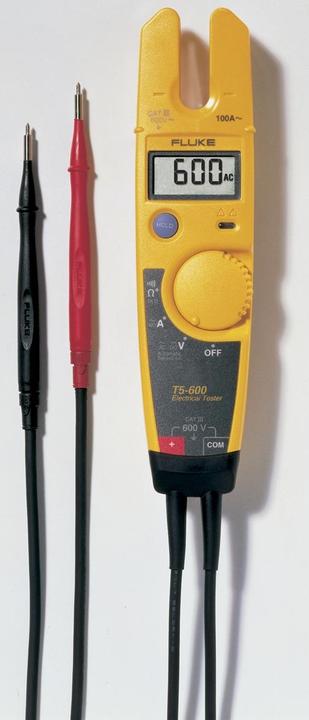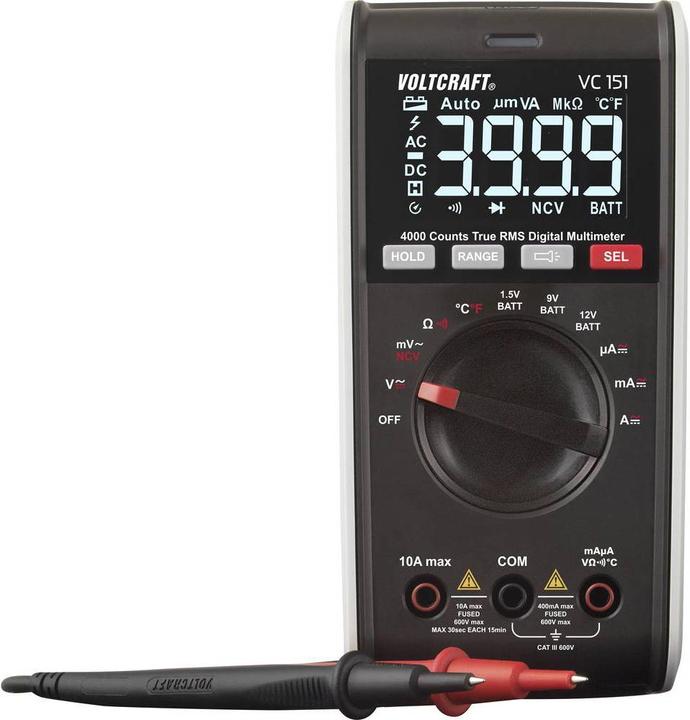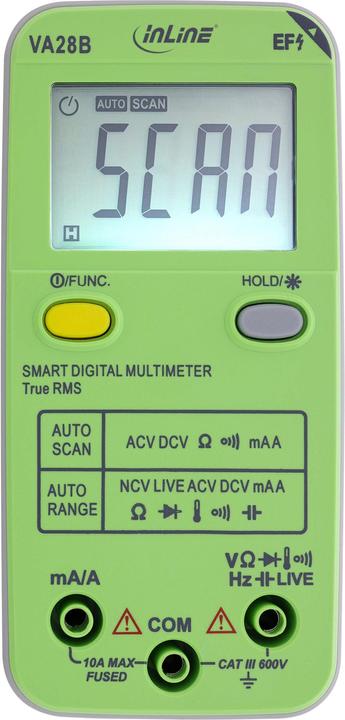
Too Many Multimeters? Here's How to Choose the Right One
Discover five essential factors to consider when selecting the perfect multimeter for your needs.
Last updated 5 days ago. Automatically generated content.


Select options and limit the number of products
The type of multimeter determines its functionality and suitability for specific electrical measurements. Choosing the right type impacts the ease and accuracy of diagnosing electrical issues, making it crucial for both professionals and DIY enthusiasts.
Popular options (you can select more than one)
Handheld multimeter
Typical price
57.– to 520.–Compact and portable design allows easy handling and transport.
Ideal for general-purpose electrical measurements, providing versatility for various tasks.
Bestseller
Cable tester
Typical price
40.– to 420.–Specifically designed to test the integrity and functionality of electrical cables.
Essential for ensuring proper cable connections, preventing signal loss and equipment failure.
Bestseller
Pincer ammeter
Typical price
100.– to 420.–Features a clamp mechanism for measuring current without breaking the circuit.
Perfect for quick and non-intrusive current measurements, beneficial for troubleshooting live circuits.
Bestseller
Voltage tester
Typical price
27.– to 260.–Simple tool used to detect the presence of voltage in electrical circuits.
Useful for verifying live wires, enhancing safety during electrical installations and repairs.
Bestseller
Measurement category defines the safety level and environment where a multimeter can be used, based on its ability to handle transient voltage spikes. Choosing the correct category ensures reliable performance and prevents damage during electrical measurements, particularly in high-voltage situations.
Popular options (you can select more than one)
CAT IV 600V
Typical price
130.– to 750.–Designed for high-risk environments like utility connections and outdoor installations.
Offers the highest level of protection against voltage spikes, ensuring safety when working directly with power sources.
Bestseller
CAT III 1000V
Typical price
110.– to 640.–Suitable for fixed installations like distribution panels and industrial equipment.
Provides robust protection for measuring devices in environments with potential high energy surges.
Bestseller
CAT II 600V
Typical price
61.– to 300.–Intended for use with local-level circuits such as appliances and portable tools.
Ensures safe operation when measuring household circuits, offering moderate protection from voltage spikes.
Bestseller
CAT I
Typical price
290.– to 1300.–Appropriate for low-energy circuits, including electronics and small appliances.
Ideal for bench work and electronics troubleshooting, where minimal transient voltage risk is present.
Bestseller
Measurement type in a multimeter determines the accuracy and reliability of readings when assessing electrical signals. Choosing the right measurement type is crucial for ensuring precise diagnostics and optimal performance in electrical tasks.
Popular options (you can select more than one)
True RMS
Typical price
120.– to 570.–Accurately measures both sinusoidal and non-sinusoidal AC waveforms.
Ideal for complex circuits, providing reliable readings in diverse electrical environments.
Bestseller
Mean value
Typical price
61.– to 300.–Measures the average value of sinusoidal waveforms, often less accurate for distorted signals.
Best suited for basic applications, offering a cost-effective solution for standard electrical measurements.
Bestseller
Measurement tolerance indicates the accuracy level of a multimeter's readings, showing the deviation percentage from the true value. It is crucial for ensuring reliable measurements, influencing how precise your diagnostics and analysis will be, especially in sensitive electrical applications.
Popular options
Up to 0.5 ± %
Typical price
170.– to 840.–Offers the highest accuracy with minimal deviation from the true value.
Ideal for precise tasks such as laboratory work or detailed electrical diagnostics, ensuring dependable results.
Bestseller
0.6 - 1.5 ± %
Typical price
100.– to 490.–Provides moderate accuracy with slightly higher deviation tolerance.
Suitable for general-purpose use, balancing precision with affordability for everyday electrical tasks.
Bestseller
1.6 - 3 ± %
Typical price
100.– to 400.–Features a broader tolerance range, allowing for more deviation from the true value.
Best for less critical applications where extreme precision is not necessary, offering cost-effectiveness for routine checks.
Bestseller
The brand factor is crucial in selecting a multimeter as it influences reliability, durability, and accuracy. Brands like Fluke and Voltcraft are known for their robust build and precision, while Max Hauri offers affordable options for basic needs.
Popular brands (you can select more than one)
Fluke
Recognized for its high-quality and durable multimeters.
Ideal for professionals seeking accurate and reliable measurements.
Bestseller
Voltcraft
Known for offering a wide range of multimeters at various price points.
Great for hobbyists and professionals who need versatile tools.
Bestseller
Max Hauri
Offers budget-friendly multimeters suitable for basic electrical tasks.
Perfect for occasional users who require essential functionalities without high costs.
Bestseller
InLine
Provides compact and easy-to-use multimeters with clear displays.
Suitable for beginners and everyday users who prioritize simplicity.
Bestseller
Joy-it
Specializes in affordable, entry-level multimeters.
Ideal for educational purposes and small-scale projects.
Bestseller
